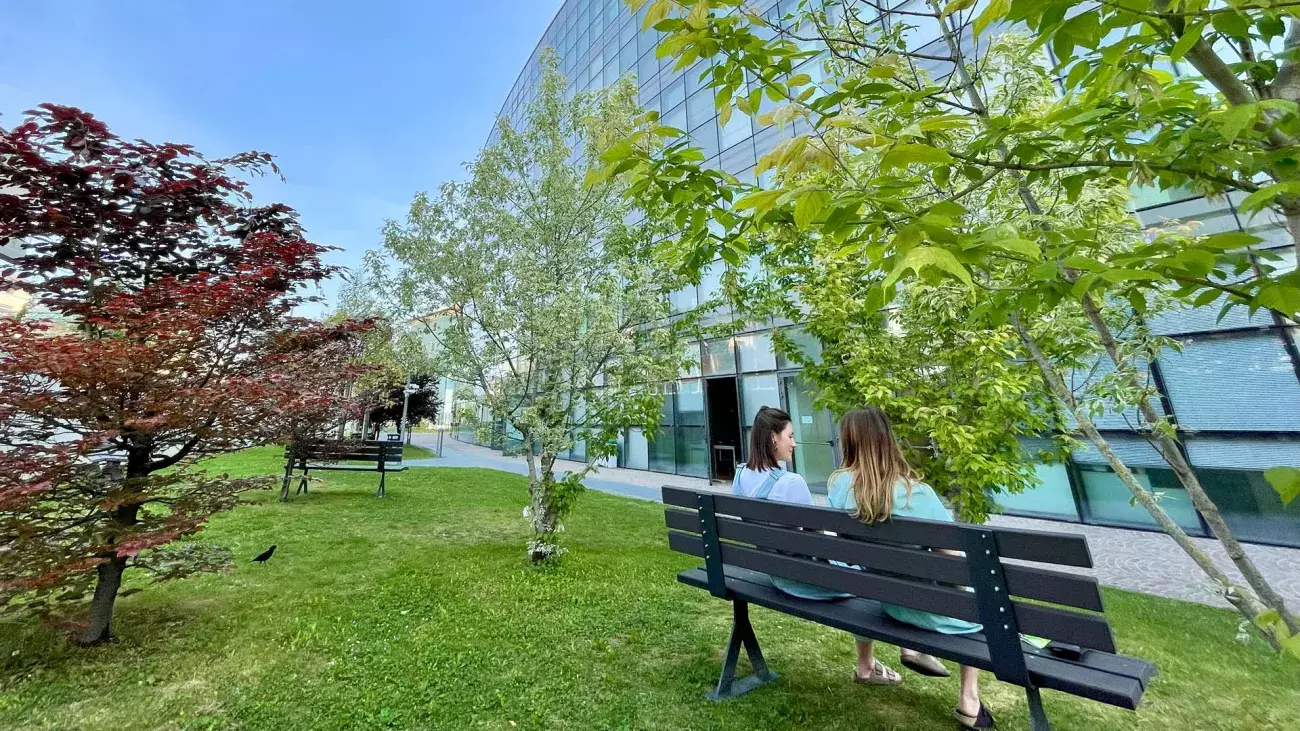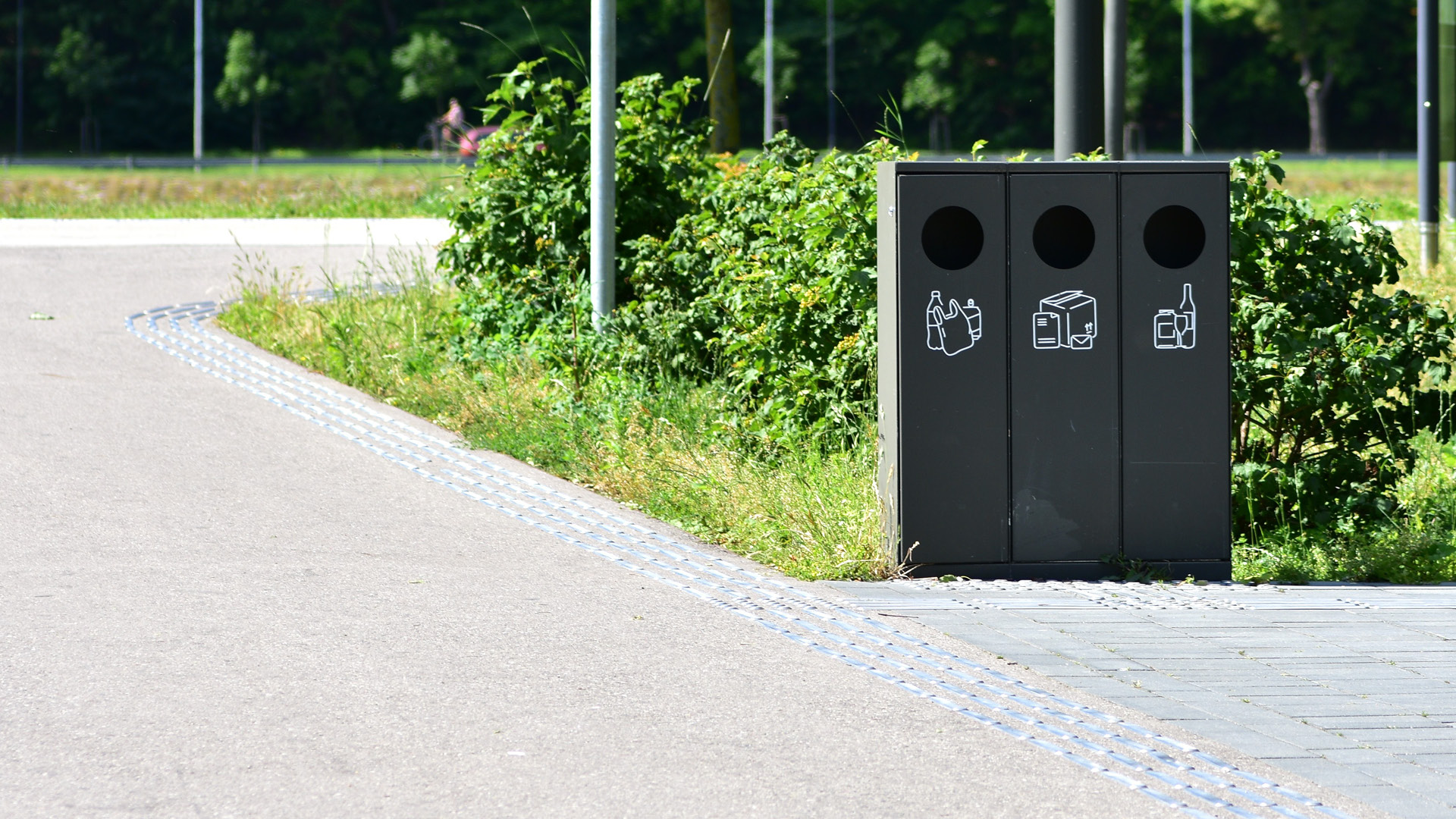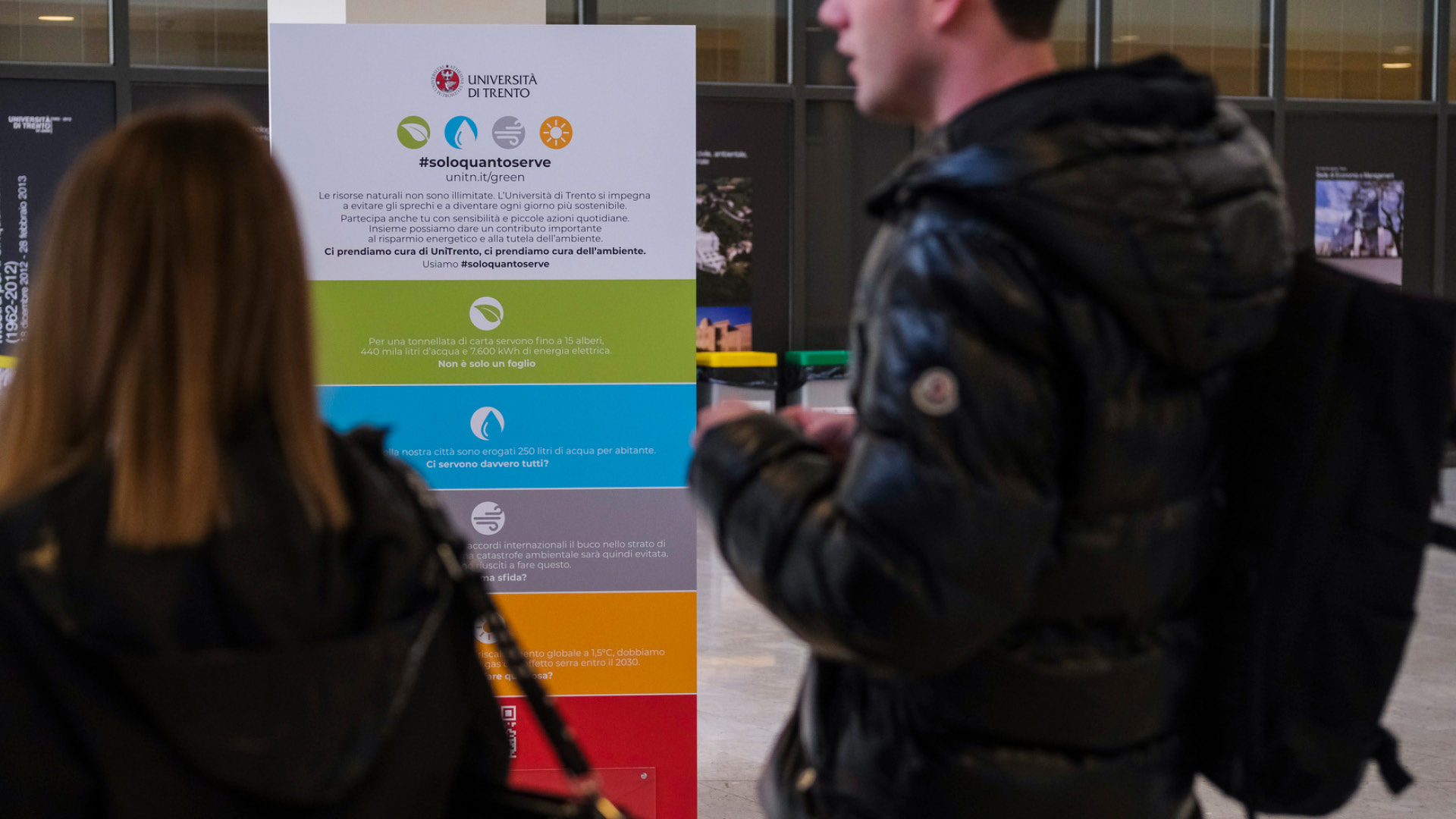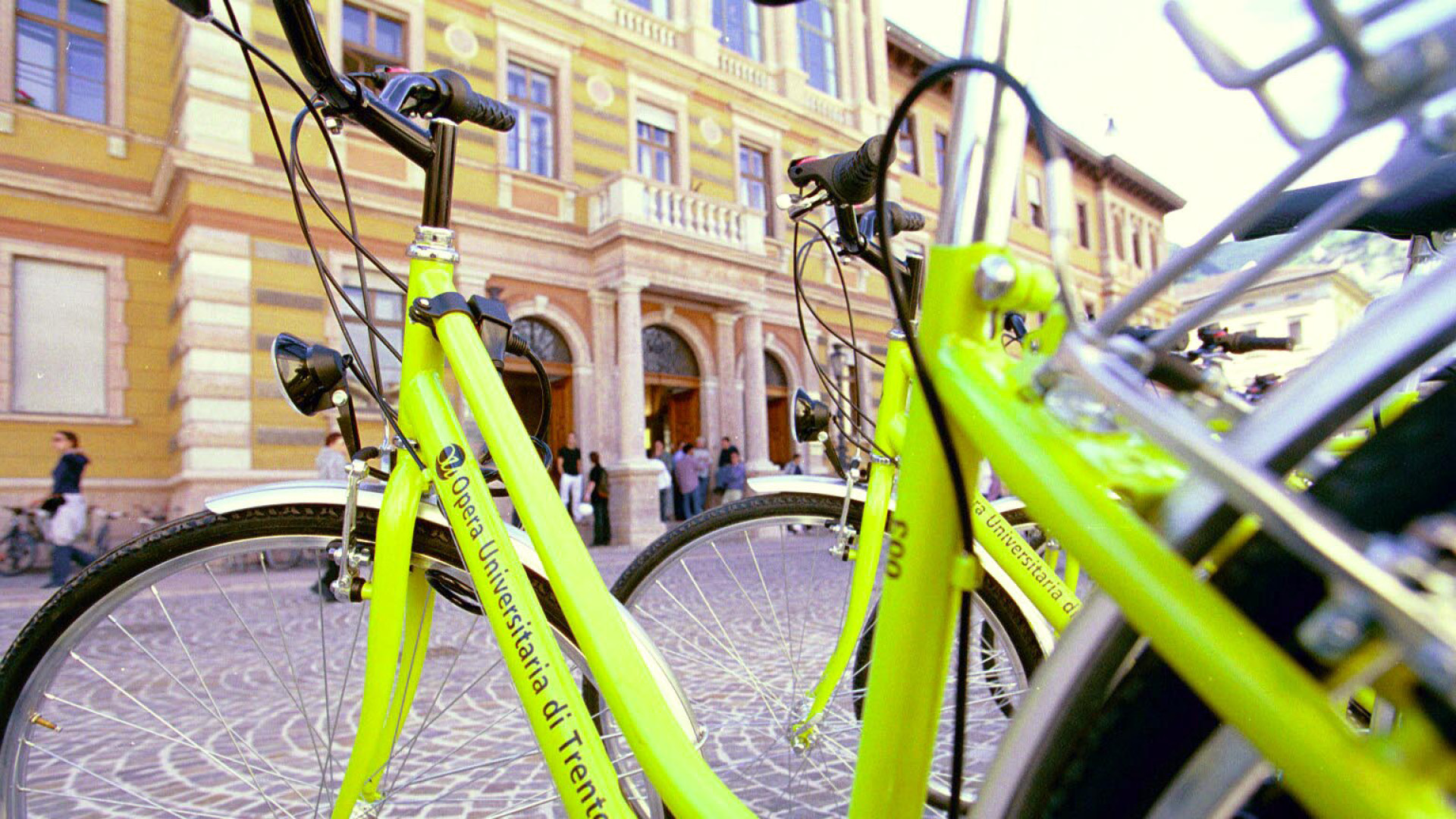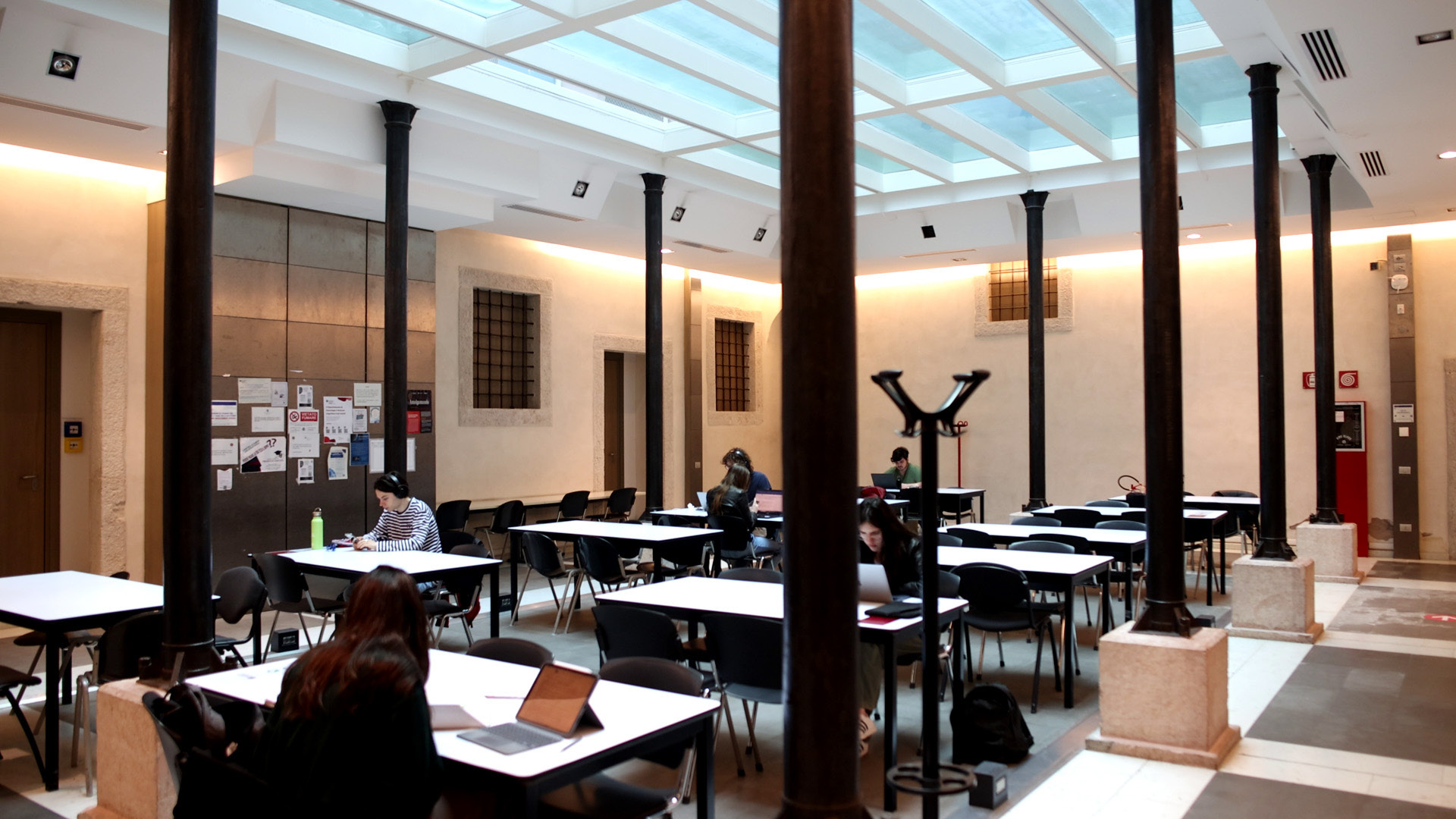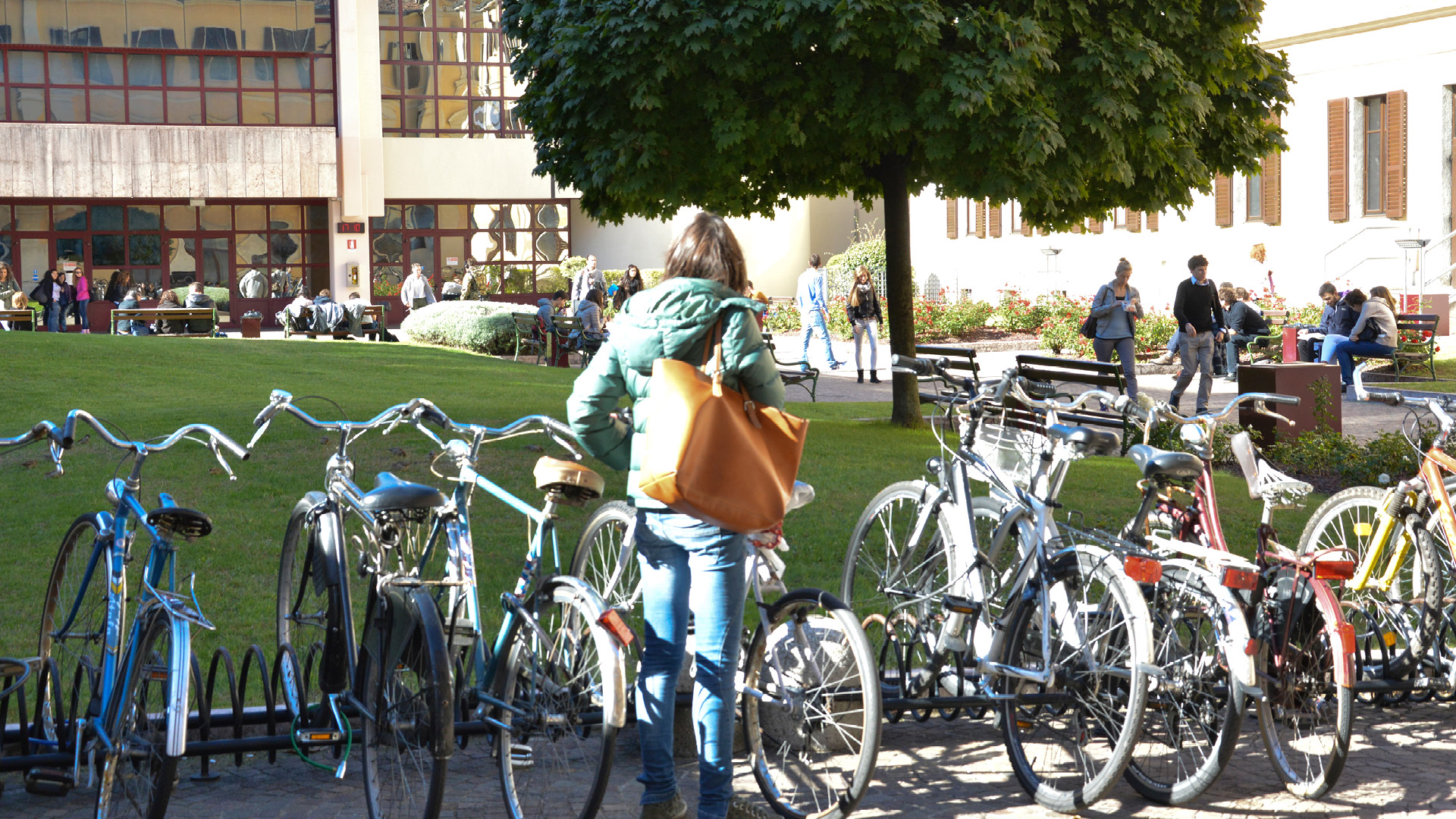UniTrento is very sensitive to the issue of environmental sustainability and approaches it with pragmatism starting from solid planning that includes a wide range of actions to be implemented in a variety of areas.
Numerous institutional, organisational and management documents have been approved over the years to make UniTrento more sustainable. These have involved, and still involve, various levels of university life:
- the Code of Ethics approved by the Academic Senate in March 2014 makes explicit reference to the principle of environmental sustainability as a standard of conduct for all those who work within the university;
- the Environmental Sustainability Plan 2016-2018, a guide to the management of processes that play a key role in ensuring conditions of sustainable development in the university environment;
- the 2020-2021 Environmental Sustainability Plan introduced a dual management method: technical actions identified to address objective needs accompanied by a participatory method to allow the entire community and its delegates to contribute actively by proposing useful actions, and their monitoring;
- the 2024 Transitional Environmental Sustainability Plan;
- the 2025-2027 Environmental Sustainability Plan.
The objectives
The actions, ambitions and interventions of the environmental sustainability plans aim to act on two levels:
- in the university as a place of study and work to raise awareness of the themes of reusing and recycling, and the rational management of energy and resources;
- in private, to stimulate learning mechanisms so that everyone can apply the best practices learned in the workplace to their daily lives.
Progress and results will not be immediate, but the challenge is global and requires the commitment of everyone.
A widespread and participatory approach
All members of the UniTrento community are, and will be called, to work together through their daily behaviours and actions to make our university more sustainable, and to improve the relationship with the environment.
At an institutional level, the role of Delegate for Environmental Sustainability was introduced in 2015, a position currently held by Marco Ragazzi, a professor of the Department of Civil, Environmental and Mechanical Engineering in the sector of Health and Environmental Engineering.
The Green Office
The Green Office was subsequently established, comprising the Delegate for Environmental Sustainability, representatives of students and associations, as well as managerial and operational personnel who work for the implementation of the sustainability initiatives outlined in the various sustainability plans developed over the years.
With the introduction of the 2025-2027 Environmental Sustainability Plan, the Green Office was further extended through the establishment of six thematic working groups, tasked with formulating proposals and supporting the implementation of the initiatives of the plan.
- Energy - Gianluca Signore
- Resources and Waste - Mirella Ponte
- Mobility - Mirella Ponte
- Food - Natalia Magnani
- Education - Emanuele Curzel
- Harmonization - Lorenzo Giovannini
Education
Over the years our Departments and Centres have expanded their offer of courses to include environmental topics, and now many undergraduate, graduate and PhD programmes incorporate environmental sustainability in meaningful ways.
Below is the complete list:
The initiatives
Partnerships
The University of Trento is part of the Rete delle Università per lo Sviluppo Sostenibile (Network of Universities for Sustainable Development, RUS), formally established in July 2015 by the Conference of the Rectors of Italian Universities (CRUI).
The purpose of the network is to disseminate the culture of environmental sustainability and to apply its principles within Italian universities, through actions and policies that can make universities more environmentally sustainable.
In particular, the main objectives of the network, identified by its Initiative committee, can be summarised as follows:
- training and professional updating of faculty and staff in all Italian universities and, as appropriate, of school teachers;
- creation and sharing of initiatives on campus sustainability and new planning approaches in the fields of research and technology transfer and in the area of university organization and management;
- dissemination of best practices and input from international networks among the members;
creation of an inter-university community, to adequately represent Italian universities at international level; - support for projects that have already been successfully implemented both within and outside universities and in other settings (see for instance the living labs1 for cities - 1: A living lab is a real life laboratory where innovative instruments applied to different aspects of everyday life are tested. Within this new research approach, different actors collaborate with each other: researchers, citizens, public and private organizations, with the purpose of testing modern and innovative products and services in territorial contexts, like cities);
- implementation of a common and shared system to monitor the environmental and social performance of universities;
- development of the educational dimension of university programmes to encourage students to adopt sustainable lifestyles.
The University of Trento joined this ambitious project, which now includes a growing number of members, in its early stages.
The RUS network is still growing and the number of member universities is continuously increasing. Many important events took place in the first months of work of the network, to which delegates from member universities participated.
RUS members have written the organization’s charter, which was adopted in agreement with CRUI. At the moment, the Politecnico University of Torino is working as a liaison office between the RUS members, the network and CRUI.
For further information, visit the website.
Contacts
Let your voice be heard! Send your suggestions, proposals or information requests to [email protected]
